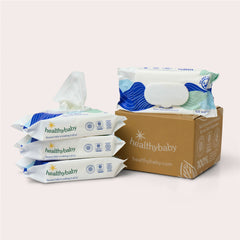Development isn’t a race. It’s a flow.
Every child—and parent—is figuring it out at their own pace.
Instead of milestones, we encourage you to focus on this amazing moment.
Your child’s brain makes more than one million neural connections per second in these first three years. Simple, consistent interactions with them today can have profound, lifelong benefits.
Here’s how little one’s brain is developing this month, and how you can support their progress.
Developmental Highlight
As little one’s stream of words becomes a river, storytelling is a powerful way to deepen their understanding of the world. The use of narrative creates a sense of identity, possibility, and adventure. Neural pathways are reinforced, as little one’s brain organizes all this information.
Storytelling strengthens the connections between two important parts of the brain: the hippocampus, which primarily controls memory and learning, and the prefrontal cortex, which is involved in planning, decision-making, emotional regulation, and social cognition.
Little one won’t remember these first years long-term, due to a phenomenon known as infantile amnesia—this is why our earliest memories occur at age 3 or 4. But little one’s brain is permanently shaped by everything they’re learning. Repetition, visualization, and increasingly elaborate storytelling lay the foundation for the memory development that will be crucial to long-term cognitive growth.
Brain-Building Activity
Storytelling
Routine: Playtime, bedtime
Little one is naturally drawn to stories, especially when they’re the main character! At this stage, plot isn’t important. Even the most simple recounting of the day enhances imagination, supports sequencing, and builds the foundations of grammar and cognitive skills, like inference and problem-solving.
- During an activity: Encourage little one to notice specific details in the moment. “You’re at the park! See all the trees? It’s a beautiful, sunny day. Look, there’s a big slide!”
- After an activity: Remind little one about what they did earlier. “You went to the park earlier and saw so many trees! It was beautiful, and you were excited to go on the slide.
-
At bedtime: Retell the story again, reinforcing the memory as a storyline. “Remember when you went to the park today? It was beautiful and sunny. What did you see in the park? ”
You’ve Got This
What were you just reading about? Ah yes, memory! If it feels like you can’t remember anything lately, you’re probably not getting enough rest. The simplest, most achievable way parents can practice self-care is by getting quality sleep.
In the daily stress of parenting, it’s easy to forget that these are the good ol’ days. Soon, you’ll be looking back at this stage fondly. Think about what you want to remember. Do you want a clear or blurry picture of this time with little one?
Healthy circadian rhythms enable richer, more balanced memories. Try retrospecting, or reviewing the day's events, before you turn in. Recalling the ups and downs will help your brain make sense of them, so you can face tomorrow with greater resilience.











